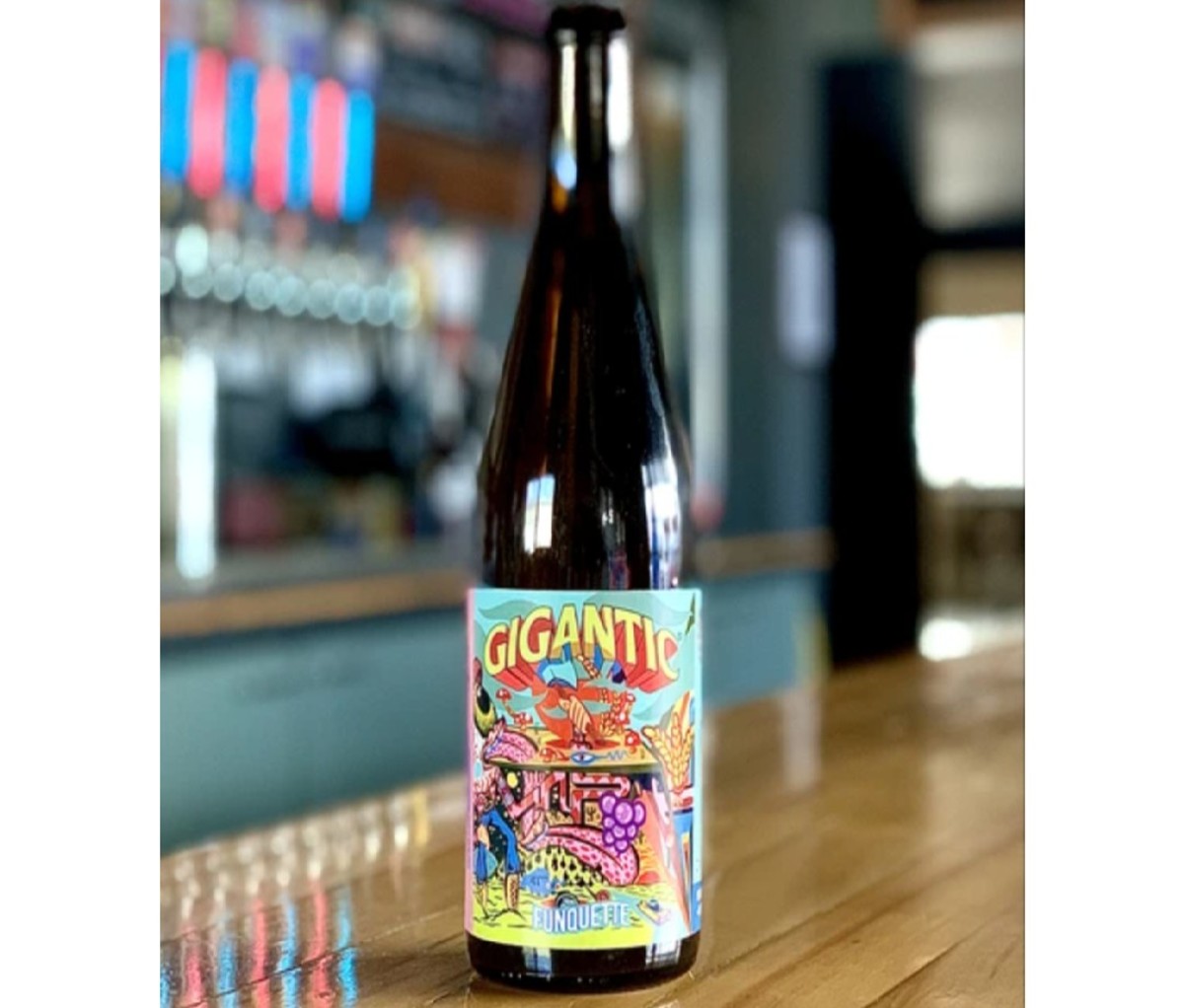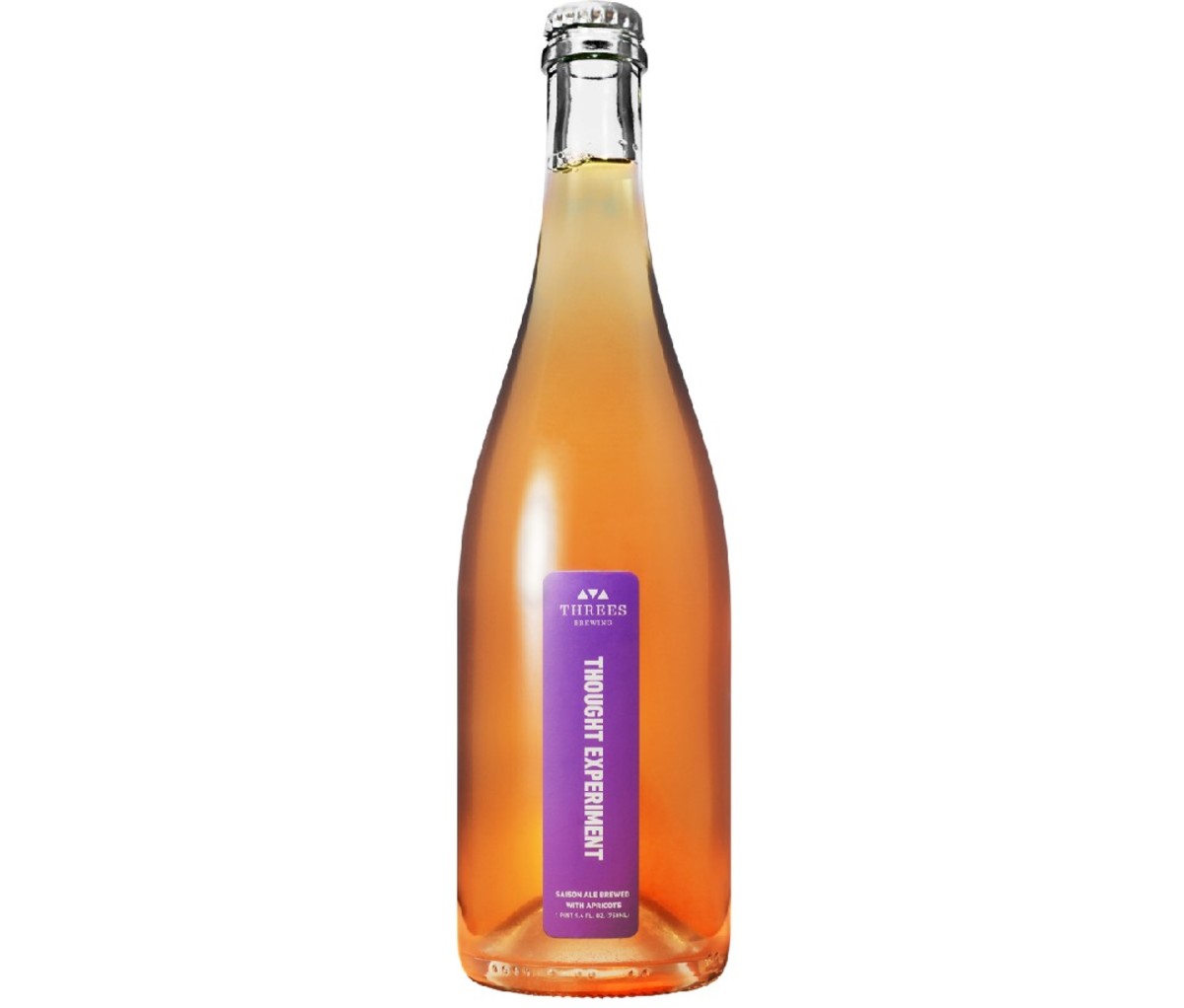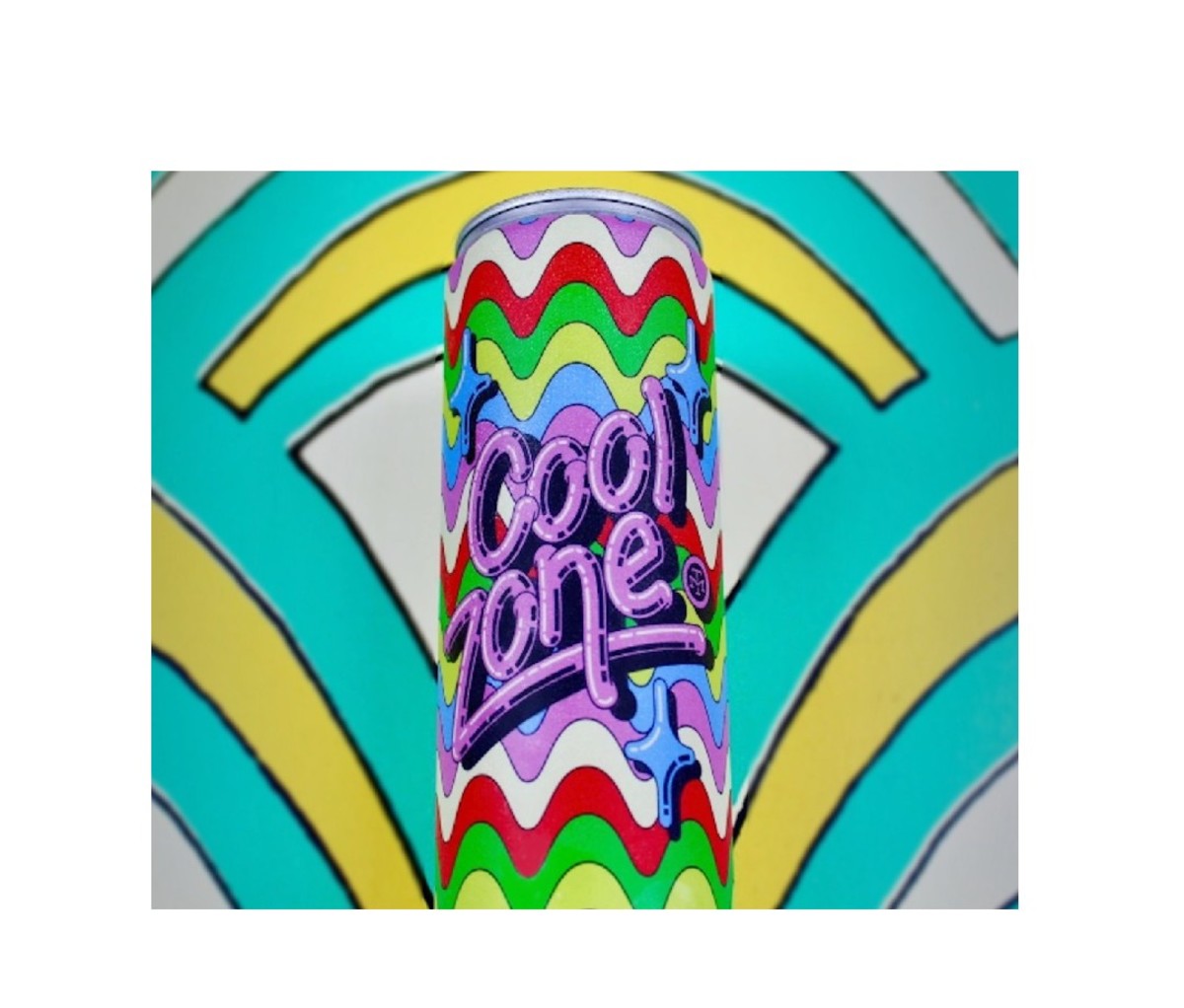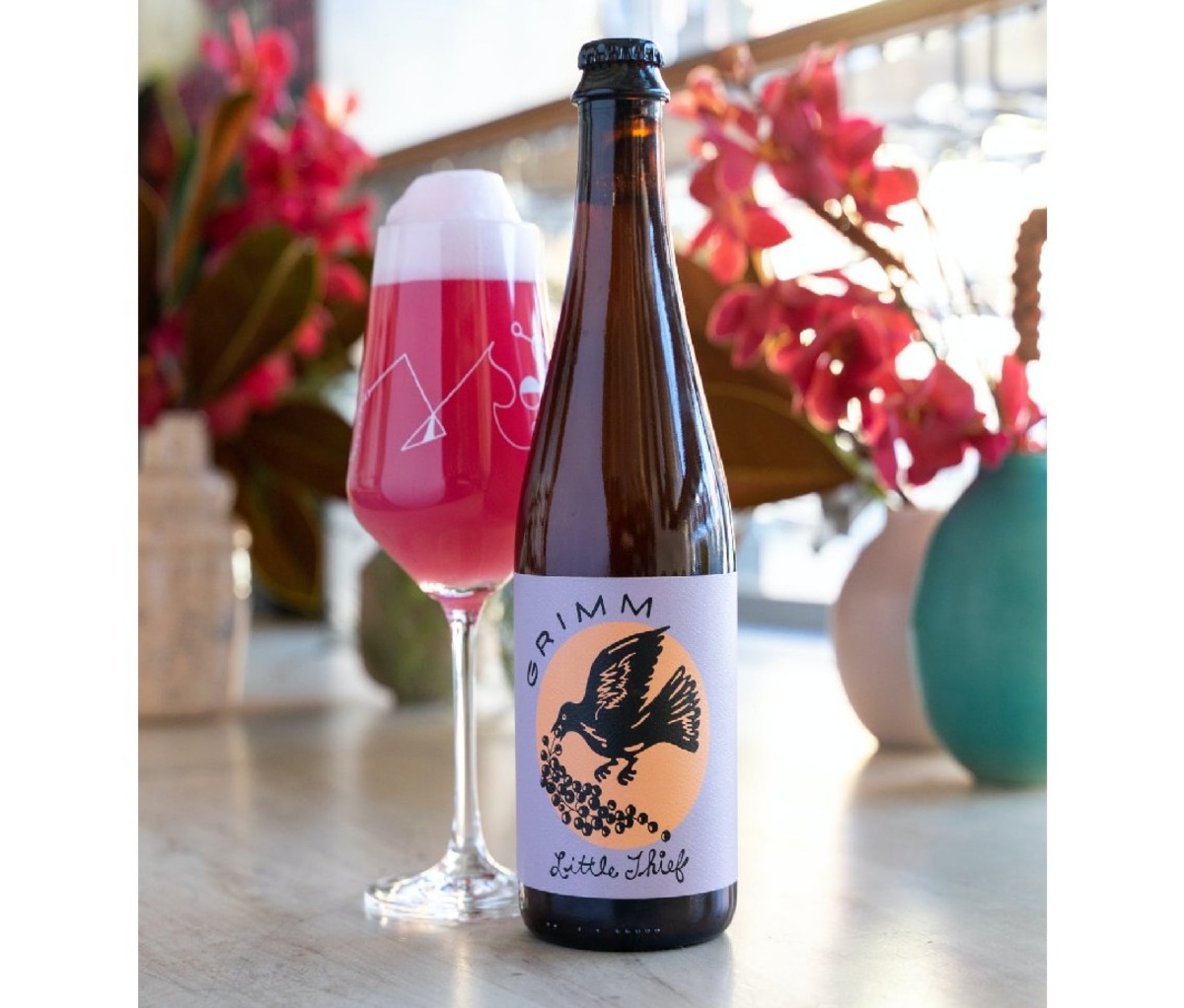Aluminum cans aren’t the only thing brewers are recycling. Increasingly, brewers are making fruit beers with previously fermented fruits such as blackberries and peaches, plus pressed grape skins and stems, turning waste into beers that you’ll want to drink again and again.
Part of the trend’s popularity can be traced to surging interest in piquette. It’s a rustic French technique of turning pomace—the skins, pulp, and stems leftover after pressing grapes for wines—into a low-alcohol, wine-like beverage that’s fizzy, fruity, and often only around 5 percent ABV. The method is favored by many natural winemakers, and “we get a lot of inspiration from what is going on in that world,” says Jake Guidry, the brand director for Hopewell Brewing.
The Chicago brewery’s Neon series of sour ales features massive amounts of fruits such as cherries, raspberries, and blueberries. At first Hopewell didn’t recycle the fruit, but it started experimenting and discovered the value of second-use fruit, especially berries. That led the brewery to launch Neonette program of piquette-style beers.
Don’t expect Jamba juiciness. The brewery makes a lower-alcohol base beer then steeps the fruit, letting the subdued fruitiness shine. “We’re getting more of a prickliness and more tannins coming through,” Guidry says. “They’re going to give you a completely different experience with fruit.” Here are five great beers featuring second-use fruit. They’re all worth trying for the first time.
Second-Use Fruit Beers

Hopewell Brewing
Neonette, 4.9% ABV
Pét-nat wines informed Hopewell Brewing’s series of Neon sour ales, which are lavishly fruited and packaged in clear glass bottles to better highlight each release’s electric hue. To make its piquette-inspired Neonette beers, the Chicago brewery makes a moderate-strength table beer, then ferments it with previously used Neon fruit such as black raspberries.
[hopewellbrewing.com]

Gigantic Brewing
Funquette, 6.3% ABV
The Portland, Oregon, brewery partnered with Stillwater Artisanal and St. Reginald Parish, a natural wine producer in Oregon, on this piquette-inspired sipper. Funquette is made by pairing just-pressed pinot gris pomace with a barrel-aged saison inoculated with wild yeast and a bit of fresh wort, a.k.a. the sugar-rich broth that becomes beer. The fermented result is seltzer-fizzy, the gently cutting tartness balanced by a smidgen of fruity sweetness reminiscent of a ripe cantaloupe.
[giganticbrewing.com]

Threes Brewing
Thought Experiment Peach, 4.8% ABV
For its Thought Experiment series, Brooklyn’s Threes takes its food-friendly table beer and ages it on fruits previously used in another beer, such as blueberries and cherries. The fruits lend color and flavor, creating spritzy and colorful refreshers reminiscent of sparkling wine. This peachy release (the fruits were previously used in an oak-aged saison) would make for a perfect brunch beer, low enough in alcohol that you can crush the whole bottle.
[threesbrewing.com]

Modern Times
Cool Zone, 3.8% ABV
In pursuit of the perfect poolside beer, the San Diego brewery infused a funky, wood-aged Belgian beer with a “frickin’ mountain” of second-use Zinfandel and Petite Sirah grapes. Modern Times then added de-aerated water to drop the alcohol to a positively crushable 3.8 percent—less boozy than Bud Light. Think of this as a fruity beer spritzer.
[moderntimesbeer.com]

Grimm Artisanal Ales
Little Thief, 3% ABV
The Brooklyn brewery is big on recycling its grains and fruits. For example, Seconds is a low-alcohol dark mild brewed with grains originally used to make a strong imperial stout, while the spent skins and stems of Merlot grapes used to make a barrel-aged sour ale were repurposed for Little Thief. The brightly refreshing Berliner weisse–style sour makes for a fine start or finish to any meal, or most any time of the day.
[grimmales.com]
from Men's Journal https://ift.tt/2NAuI5R



No comments:
Post a Comment